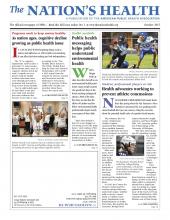U.S. veterans who leave the military for misconduct issues, such as drug use, are at significantly higher risk for homelessness, a recent study finds.
The findings are shared in a research letter published Aug. 25 in the Journal of the American Medical Association.
“At some level, a lot is known about the risk factors for homelessness in the general population and veterans, but the magnitude of the effect for this one category is surprising,” said Adi Gundlapalli, MD, PhD, MS, lead study author and associate professor of internal medicine at the University of Utah School of Medicine and University of Utah Hospitals and Clinics. “This is the strongest predictor of homelessness among veterans we know to date.”
The study looked at more than 448,000 active duty military members and determined their housing status based on medical coding and use of Veterans Health Administration homelessness services. Participants had been deployed in Afghanistan and Iraq, separated from the military between Oct. 1, 2001, and Dec. 31, 2011, and used VHA services.
Veterans were divided among six categories for leaving the military. In addition to the military misconduct category, which includes drug and alcohol use and other offenses, others left due to disability or early release.
Among veterans who were homeless, those who left the military due to misconduct had the highest rate of homelessness compared with members who were homeless but fell into other categories for leaving the military, such as having a disability.
For example, 1.3 percent of veterans who left due to misconduct were homeless at the time of their first use of VHA services, compared with 0.2 percent for veterans who left the military for regular reasons, such as retirement, the study said.
After five years of using federal veteran health services, 9.8 percent of veterans who left for misconduct were homeless compared with 1.4 percent of veterans who left for regular reasons.
Additionally, while 5.6 percent of study participants left due to misconduct, those military members still made up 25.6 percent of veterans who were homeless by the time they first used VHA services, the study said.
Gundlapalli said the transition from active duty military service to leaving service is a critical period and typically the Veterans Affairs system waits for military members to reach out first for health services. He said this could be an opportunity for the Department of Defense and the Department of Veterans Affairs to work together to find early identification and active case management strategies to prevent homelessness.
“If we can be a little bit more proactive rather than reactive and waiting for them, then maybe there’s an intervention to be had,” Gundlapalli told The Nation’s Health. “It may involve some retooling on our part from the VA.”
For more information, visit http://jama.jamanetwork.com/article.aspx?articleid=2429703.
- Copyright The Nation’s Health, American Public Health Association









